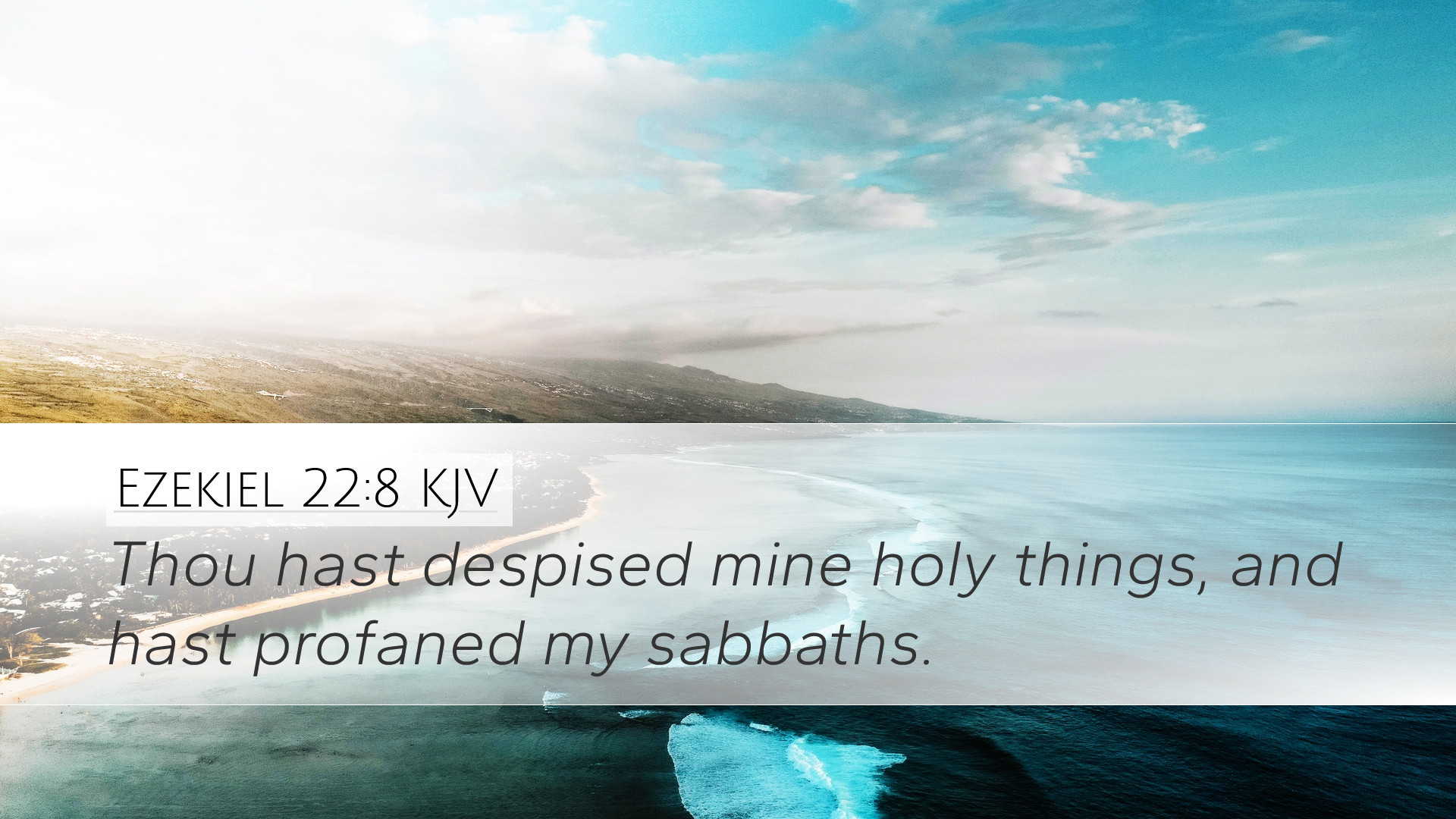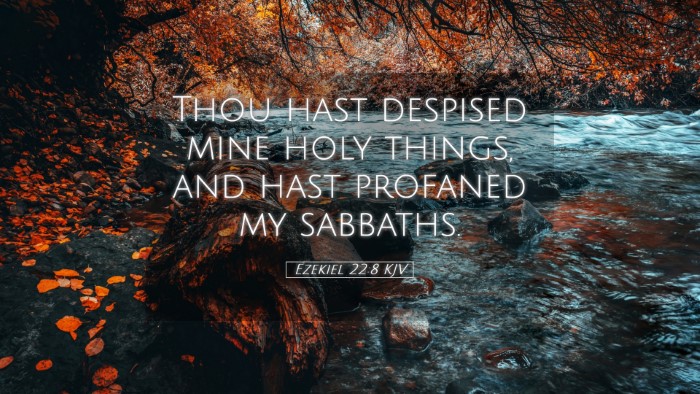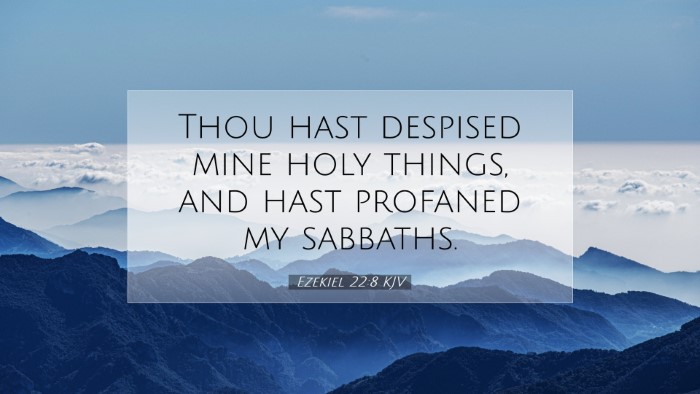Ezekiel 22:8 Commentary Summary
Bible Verse: "Thou hast despised mine holy things, and hast profaned my sabbaths."
Introduction
The book of Ezekiel, written during the Babylonian exile, addresses the spiritual and moral decline of Israel. Chapter 22 presents a scathing indictment of Jerusalem’s leaders and people for their pervasive corruption and disregard for God’s laws. Verse 8 encapsulates a significant aspect of this rebuke, focusing on the contempt shown towards God’s holy institutions, particularly the Sabbath.
Context and Cultural Background
Ezekiel was a prophet who ministered during a crucial period in Israel's history. The context of Ezekiel 22 concerns the sins of Jerusalem, particularly against religious observance. The Sabbath, a symbol of Israel’s covenant with God, was meant to be a day of rest and remembrance of God’s creative and redemptive work. By profaning the Sabbath, the people demonstrated a rejection of God's authority and a profound spiritual decay.
Insights from Commentators
Matthew Henry
Henry emphasizes the severity of the Israelites’ actions, suggesting that despising God's holy things signifies a complete disregard for divine authority. He states that the profanation of the Sabbath indicates not merely an act of neglect but a deeper state of rebellion against God. It reflects an attitude that was pervasive among the leaders and people, showcasing the collective moral and spiritual failure of the nation.
Albert Barnes
Barnes highlights the violation of divine principles as an act of spiritual blindness. He points out that this specific accusation, while directed at the Israelites, serves as a reminder for future generations. The emphasis on the Sabbath reflects a crucial aspect of Israelite identity, and by ignoring it, the people not only harmed their relationship with God but also their own communal identity. Barnes insists that true worship and observance of God's commands, including the Sabbath, are essential for spiritual integrity.
Adam Clarke
Clarke provides a linguistic analysis of the terms “despised” and “profaned”. He notes that the Hebrew words convey a sense of dishonor and treatment as trivial. The Sabbath was intended to be a time for rest and communion with God, yet the people treated it as ordinary. Clarke’s commentary stresses the importance of sanctifying the Sabbath and the consequences of neglecting this command, which leads to further moral decay within society.
Theological Implications
The verse serves as a profound theological reflection on holiness and its relevance to the believer’s life. Understanding the importance of God’s holy things—including the Sabbath—invites believers to reflect on their own practices. In the New Testament, the concept of the Sabbath evolves, yet the principle of setting apart time for God remains paramount. This verse challenges modern believers to consider how they honor God’s commands and what it means to keep holy that which God has established.
Applications for Pastors and Theologians
- Preaching: Pastors can use this verse to emphasize the importance of reverence for God’s commandments in their teaching. Highlighting the relevance of the Sabbath can encourage congregations to cultivate a more profound respect for time dedicated to worship and rest.
- Spiritual Disciplines: The need for spiritual disciplines that honor God’s holy standards can be reinforced. This verse prompts discussions about how modern believers can practically observe a Sabbath or a day of rest in a way that honors God.
- Moral and Ethical Teachings: The passage illustrates the ethical challenges faced by leaders. The moral implications for today’s church leaders can include discussions on integrity, accountability, and the importance of modeling godly behavior to prevent spiritual decay in the church community.
Conclusion
Ezekiel 22:8 serves as a poignant reminder of Israel’s struggle with fidelity to God’s commands and the dire consequences of such neglect. Through the insights of respected commentators, we glean a deeper understanding of the significance of sanctifying God’s holy things, particularly the Sabbath. For today’s pastors, students, and theologians, this verse is not only a historical artifact but a living call to uphold righteousness and honor God's institutions in every aspect of life.


